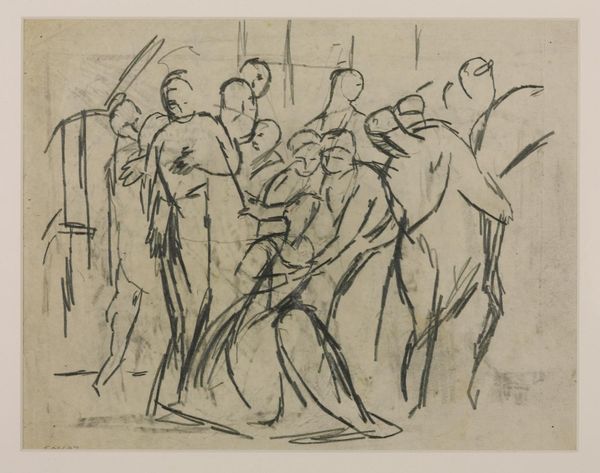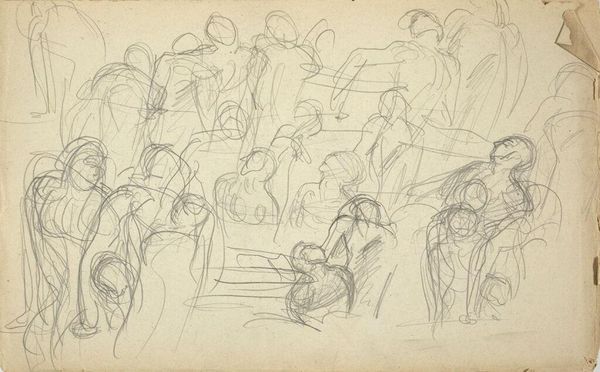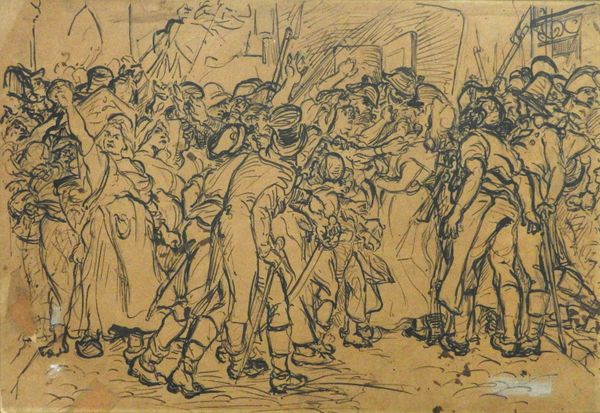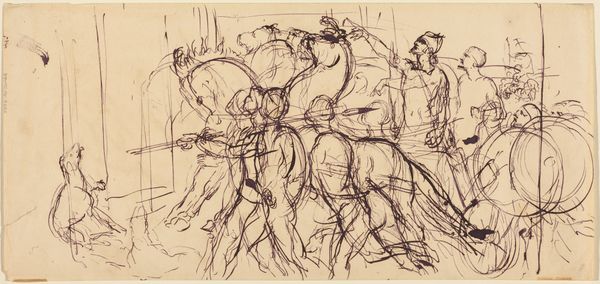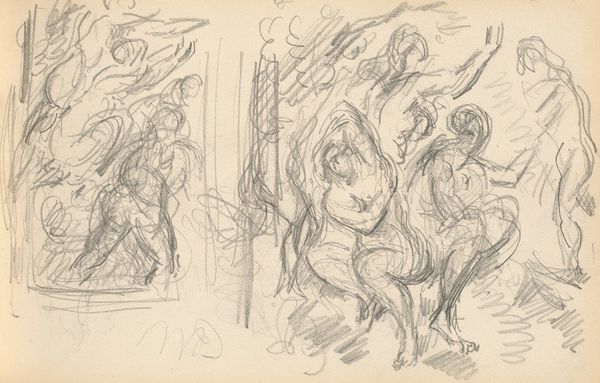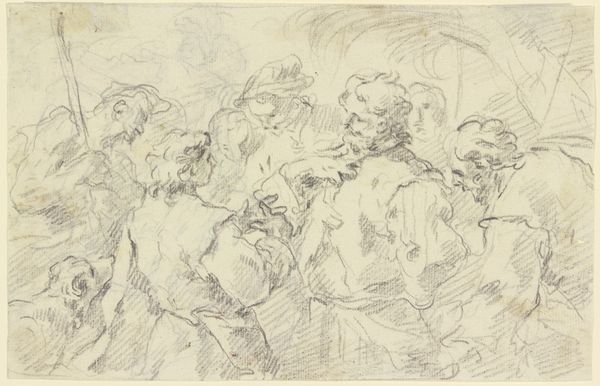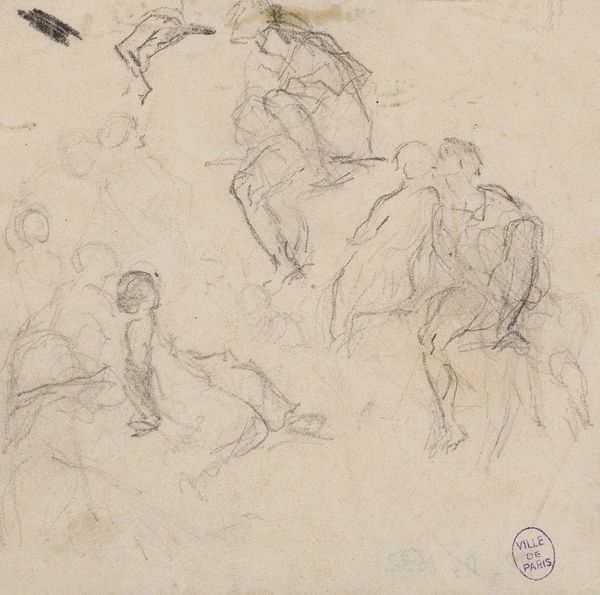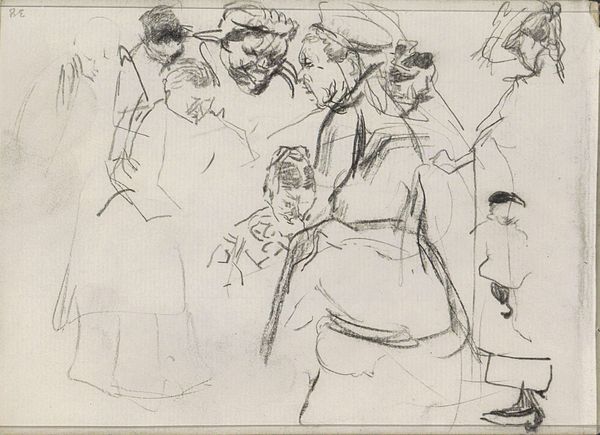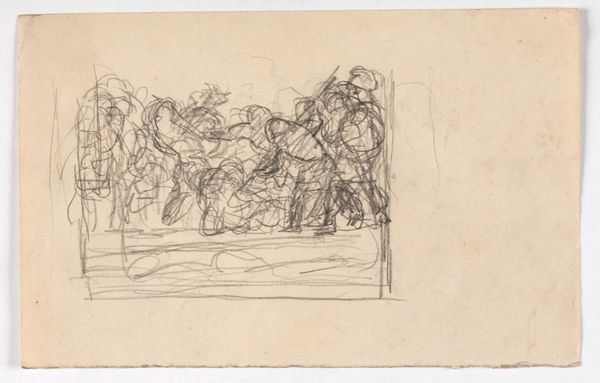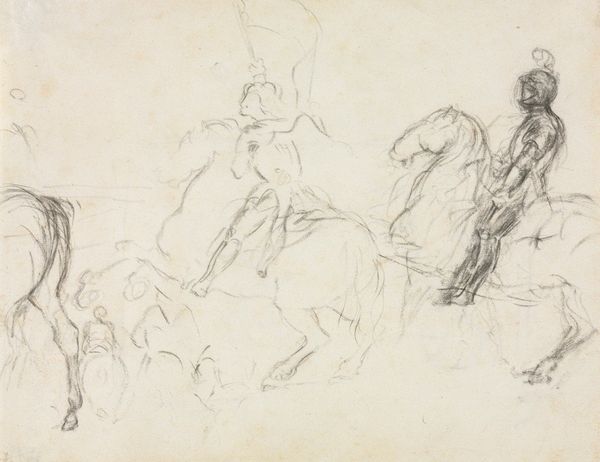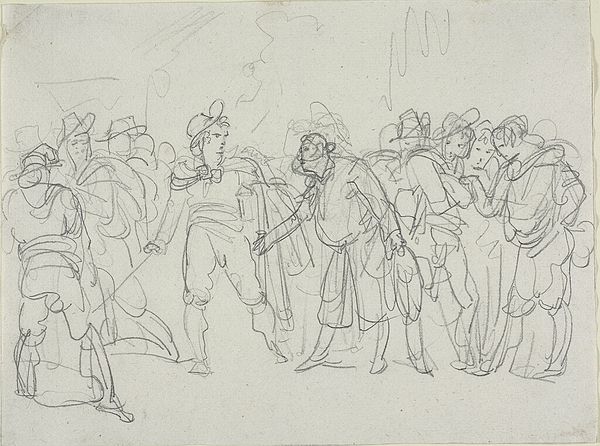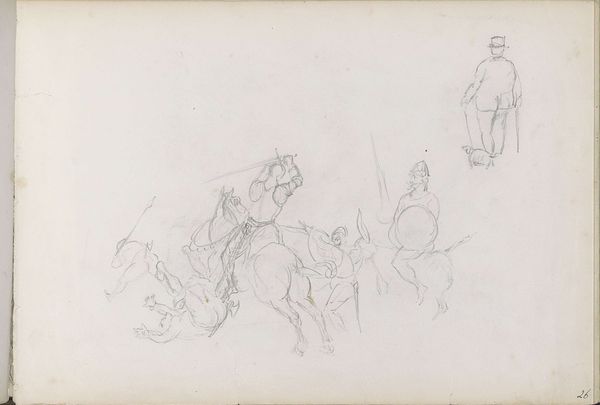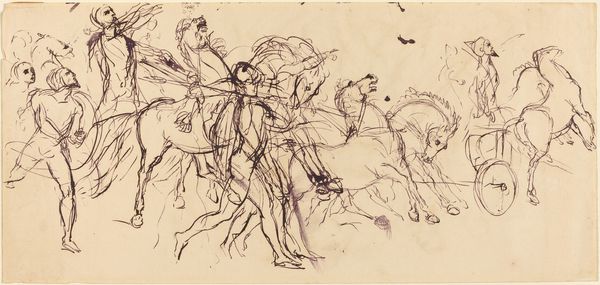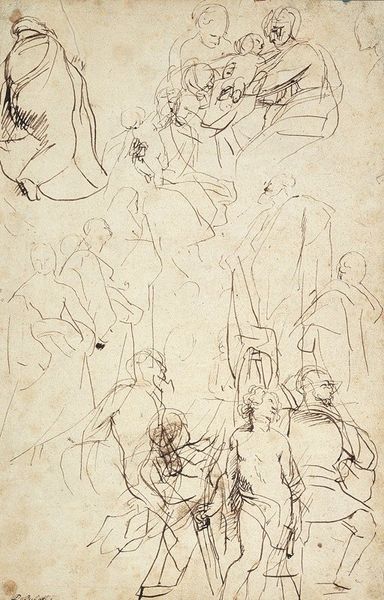
Dimensions: 21 x 32 cm
Copyright: Public domain
Curator: Here we have Alfred Dehodencq's "Study for the Departure of the Soldiers," created in 1879 using pen and ink. Editor: My initial reaction is of raw energy. It feels immediate, capturing a fleeting moment of chaotic emotion. There’s a tension in the hurried lines, a sense of unease even in what should be a display of patriotism. Curator: It speaks to the anxieties of the era. The late 19th century was a period of intense nationalism, colonialism, and military build-up. The sketch reflects the human cost often obscured by the rhetoric of glory, wouldn't you agree? Editor: Absolutely, the raw sketch technique really reinforces this—Dehodencq has foregrounded process to challenge any heroic ideal. We see figures quickly rendered with clear attention paid to gesture and to human engagement. The social context matters: where were these soldiers headed, what conditions awaited them, what role did social class play in the recruitment? Curator: Precisely. Dehodencq, who was deeply engaged in the politics of his time, positions this work as a counter-narrative to the romanticized vision of warfare. We see no glorious battle, only the somber reality of men marching off, families bidding farewell. There’s also, implicitly, a questioning of patriarchal structures that send young men to war while women and children remain behind. Editor: I see how Dehodencq focuses on the act of creation and how it contributes to a powerful message about the human impact of conflict, but I can't help wonder if this sketch also highlights the commodification of military might. Curator: An interesting point. The drawing itself becomes an object, circulated and consumed within a society grappling with its own martial ambitions. And by rendering it as a simple sketch, there's a tacit nod toward reproducibility and accessibility—challenging high art, making commentary more widespread. Editor: Yes, and perhaps inspiring collective action? Thanks to his approach, this sketch challenges hierarchies inherent not only in the military complex but within the artistic sphere itself. A real material investigation. Curator: I find myself appreciating the work anew, with the artist using the accessible medium of ink on paper to challenge militarism in France and the colonial violence in Northern Africa. Editor: For me, seeing how the rapid linework speaks to anxieties in a way no polished history painting ever could has broadened my horizons. Thanks for illuminating the context surrounding the piece.
Comments
No comments
Be the first to comment and join the conversation on the ultimate creative platform.
